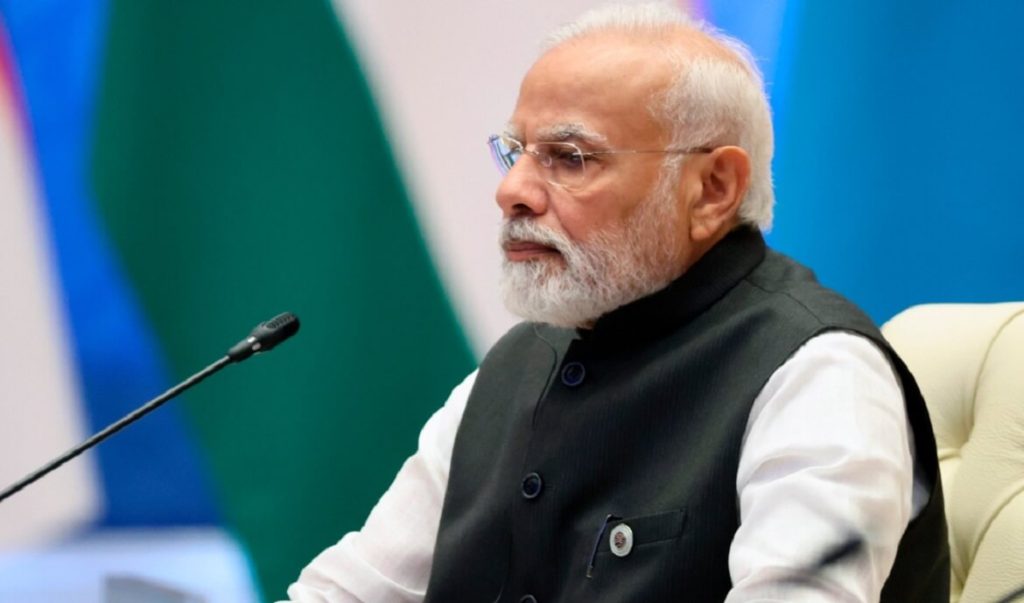By Zara Mansoor
The upcoming 2023 G20 18th summit, which is going to be held in September in New Delhi, is the first ever to be organized in India and the South Asian Region.
Leading up to the summit, India stresses its commitments to international harmony and emphasizes that a new mindset will prevail that will go beyond confrontations, and bring the “universal sense of one-ness” to the whole world. Modi said that only by acting together can we solve the greatest challenges the world is facing rather than fighting each other.

India is home to 1.4 billion people and is considered an economic growth country. India’s economy is growing rapidly due to the contribution of some of its most important policies to safeguard national interests. Jawaharlal Nehru once emphasized “We are not pro-Russian, nor for that matter are we pro-American, we are pro-Indian.” It sheds light on the Indian non aligned foreign policy with any of the major powers but focuses on its state interest. Its major concentration on its objectives made it an independent pole of global power and a leading one among the developing countries.
In January 2023, India hosted a two-day Global South Virtual Summit to highlight the international attention being paid to the priorities, needs and concerns of the developing nations around the world. Leaders and Ministers from 125 countries participated in the summit and ten sessions were held to bring to the fore the international commitments and considerations. Furthermore, New Delhi has also made promises to the developing states to provide them with its digital, nuclear and space technology. As well, in within less time it has become the third largest producer of pharmaceuticals in the whole world. Its vaccine got dispersed to the nighty-eight lower income states.
It is also the founding member of the international solar alliance and transports solar energy across its borders. Also, it extended humanitarian aid, assistance, disaster relief and educational scholarships to the global south countries and made its footprints stronger in the world. By labeling its relation with Russia as “special and privileged” and maintaining smooth bilateral ties with the US, India has gained a significant position in the international arena. Its trade in the last year with the US crossed $190 billion which surpassed $131 billion earlier.
Further, India pushes to trade with Moscow in its own currency. Its step for international trade in its local currency has further buttressed its hegemonic designs in the South Asian Region. The move is marked by experts as to promote Indian currency which gained momentum after the Western tight sanctions on Russia following its war with Ukraine which prompted both countries to trade in their local currencies. Also, the trade between India and Malaysia has also been settled in Indian Rupee.
On the other hand, Pakistan’s foreign policy and its alignments with selective world powers in the past and even in the present, with its practice of joining one major bloc while disavowing the other, have already cost it much in the past.It is very simple to underline that when the state aligns with one it closes the option from the other. And, India by sticking to non-alignment policy, putting major stress on its regional hegemonic designs, preventing internal clashes to thwart its international footing and extending considerable diplomatic ties to the world community has established itself the leader of the developing countries and having strong toe hold in the South Asian Region.
Conversely, Pakistan’s internal chaos is restricting it to go beyond its boundaries to stabilize the state and maintain its foot holding in the international world. The ongoing triadic conflict amid the establishment, military and the government of the Pakistan prevailing tensions around the country as well, the internet blackout and the loss the state experiencing inchmeal is contributing to much extent in the already dwindling economy of Pakistan.
In Pakistan, the current ground realities are seemingly in a state of flux, flowing continuously without having an appropriate direction or any pellucid trail. For some, it is considered as the volte-face, and for others a “fait accompli”. The need of the hour is to prevent the current situation from becoming the new normal and bring the normality within the outline of law and constitution. The reassuring statements by the military spokesman in the wake of the violent remonstrations and political unrest throughout the country provided a sigh of great relief to the local public of the state enduring mass atrocities and appalling conditions for the past week. On being asked on a private TV channel, the ISPR chief negated many rumors related to the resignation of high prolife military officers, which turned out to be a great sense of comfort and reprieve for the nation. It is also the point of significant importance that despite the lopsided narratives of the political fractions, people of the nation still value the sacrifices Armed forces of Pakistan have rendered to the country. Impregnable military is sine qua non for the strength and amiableness of the state and to run its affairs smoothly.
Moreover, Pakistan’s politics is in a troublesome zone and is gradually taking a volatile pitch and internal clashes creating obstacles in the smooth running of the state’s affairs and politics on national and international level. Stability is the most desired element at this time. The piecemeal break by the judiciary of Pakistan in the hour of torpedo is welcome and reminds the nation the need to retain law and order in the society.
State institutions of Pakistan should be left to dispense their constitutional duties conferred upon them. That is how the fuss could be sorted out which has remained in limbo for the past several days. Besides, the military needs to stick to its onuses of ensuring security to the masses and the courts to dilate their peace of mind as hullabaloo is disastrously damaging to the state of Pakistan. Immediate need is to defuse the strains prevailing around the world by hammering out a common point to protect the nation’s international image and national political unrest and economic crisis which are leading the state towards losing all it has suffered to gain till now.
Moreover, India has from time to time overestimated Pakistan and accused it of provoking terrorism inside and outside the region, which has also affected Pakistan’s international image. In addition, Pakistan’s internal political contrasts also often expose its violent image to the international community, and these confrontations and clashes at different levels occupy the state with so much commitment that it cannot pay much attention to the goals, reputation and opportunities that slip through its hands.
Tumult needs to be dealt successfully in order to put emphasis on bringing about the advantages and opportunities to home. While, India’s focus has always remained on its purposes to gain the supremacy in the region and ostracize Pakistan which the latter has already effectively let the former to accomplish by focusing much on its internal divisions.
Lastly, the state of Pakistan is required to put a stop to bringing inside smashes as an excuse to not achieve national objectives and stress on developing a framework which might lead a state towards its goals of stability, prosperity and niche at the domestic, regional and international level and to compete with its adverse neighborhood. The state cannot bear the stress and the loss much longer.
Author: Zara Mansoor – International Relations’ Scholar and a Political Analyst. She hails from Islamabad and contributes to different national and international magazines and newspapers. Her area of research is international security and nuclear proliferation and nonproliferation.
(The views expressed in this article belong only to the author and do not necessarily reflect the views of World Geostrategic Insights)
Image Credit: Reuters







